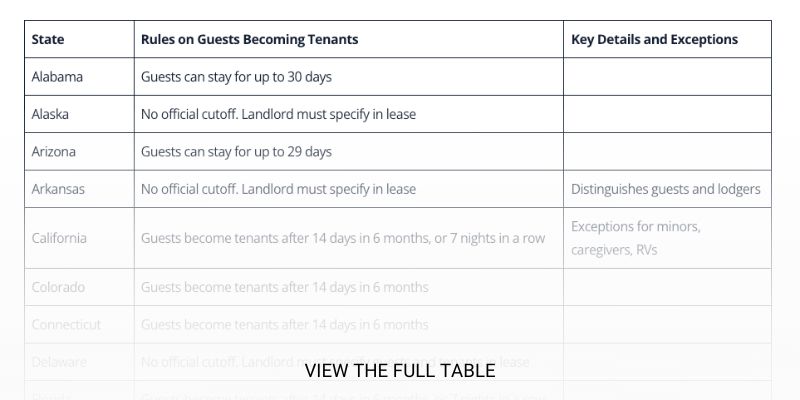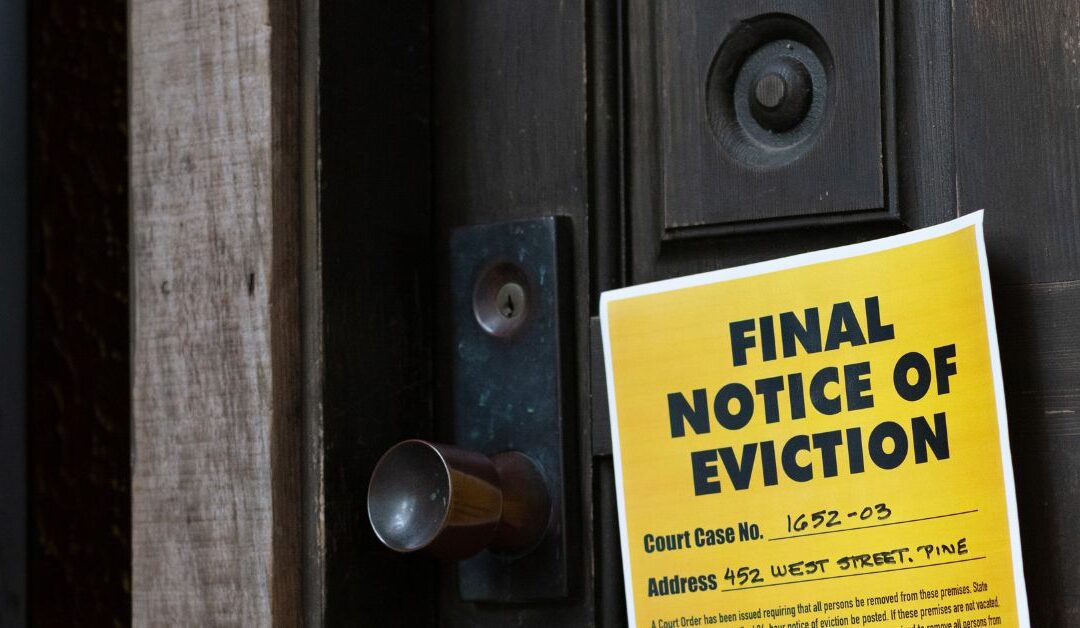Updated on October 27, 2023
Guests who refuse to leave vacation rentals at the end of their rental term by claiming tenant rights have grabbed headlines across the country.
“We have seen an increasing number of opportunists and scammers that take advantage of the sparsity of vacation rental-specific regulations,” said Jason Bloom, an attorney with Baker Donelson in Fort Lauderdale, Florida.
States have their own versions of landlord-tenant laws and a separate set of laws for public lodging establishments like hotels, but these laws do not specifically address the process of removing an undesirable or non-paying guest from vacation rentals.
“In Florida, for example, there are laws which permit public lodging establishments to eject undesirable and/or non-paying guests and assign criminal penalties for guests that do not comply,” Jason said. “Unfortunately, the Florida Legislature has specifically excluded vacation rentals from the definition of public lodging establishments, and these remedies are not available in the short-term rental context in most scenarios.”
Instead, a host or property manager typically will have to follow landlord-tenant laws to evict a guest.
“Evicting short-term rentals can be a major headache for owners and managers,” Jason said. “The laws and regulations concerning the eviction process can be hyper-localized, always varying from state to state and sometimes even varying [between] counties, cities, or municipalities.”
As a host or property manager, it’s important to know what to do if you find yourself in a situation in which a guest refuses to leave. Here’s a step-by-step guide on how to evict a guest who refuses to leave your property.
Check local laws on “tenant rights”
Before taking any legal action to evict the guest, check whether your guest has stayed long enough at your property to be entitled to “tenant rights.”
Tenant rights are legal protections given to occupants after they have lived at a property for a certain period of time.
The time period after which a guest becomes entitled to tenant rights differs from state to state. In most states, it’s after 30 days. But in some states, it can be much shorter than that. In California, for instance, a guest becomes a legal tenant after seven consecutive days or 14 days over six months.
You can find your respective state laws by searching your state’s revised statute website. Another resource for this information is Proper Insurance’s quick state-by-state guide at the end of their blog post on Understanding When A Guest Becomes A Tenant.

If your guest has not yet gained tenant rights under the law, you may not have to go through the eviction process.
Call law enforcement
If your guest has not attained tenant status under local laws, call law enforcement to report that your guest is refusing to leave the property. Law enforcement may be able to remove the guest for trespassing, or they may need a court order to remove the guest.
Hire a local lawyer
Because eviction laws can vary between jurisdictions, it’s important to find a real estate lawyer who knows your local laws. In some cases, a lawyer might be required by local laws.
“In almost any circumstance where you need to remove a renter from a property, you will need a lawyer to assist,” Jason said. “While self-help is strongly discouraged regardless, if your property is owned in the name of a corporation or LLC, Florida law requires your entity to be represented by counsel.”
Send an eviction notice
Before filing an eviction case in court, you are typically required to send a formal notice to your guest asking them to leave the property.
Generally, it’s best to send the notice by certified mail with a return receipt so you have evidence that the guest received the notice. However, check your local laws to confirm what’s required as part of your eviction notice. Local laws also may differ on how many days of notice you need to give.
Keep all documentation
Make sure that you save all documentation of your communication and rental agreements with the guest. If there is security camera footage from the outside of the home, also preserve that in the event it is needed in court. Preserve any evidence that could help win your case and show it to your lawyer.
File an eviction case
If the guest doesn’t move out by the deadline on the eviction notice, it’s time for you to file an eviction case in court.
“Once a legal process is initiated, it can often take months or sometimes years for it to conclude,” Jason said.
Legal fees and costs for litigation start around $5,000 and can add up to tens of thousands of dollars if the case is highly contested, he said.
Go to mediation
Given the high cost of litigation, it might be beneficial to go into mediation with your guest and offer them something in exchange for leaving the property. But be aware that mediation must be voluntary and non-binding, Jason said.
Recoup your expenses and legal fees
Filing an eviction case costs a lot more than just your legal fees. You will experience a loss of income from rents and potentially have damages caused to the property that you will need to repair after the guest is evicted.
You may be able to recover your losses by suing the renter for breach of the rental agreement and seeking damages.
Some platforms like Airbnb offer limited protection against squatters through its insurance policies. Those policies may reimburse you for up to $1 million in damages caused by the guest-turned-squatter. However, the policies offered by platforms don’t cover loss of income or legal expenses.
If you have Squatters Coverage on your private short-term rental rental insurance policy, you may also be able to get reimbursement for your loss of income from lost rents.
…
GET UPDATES

